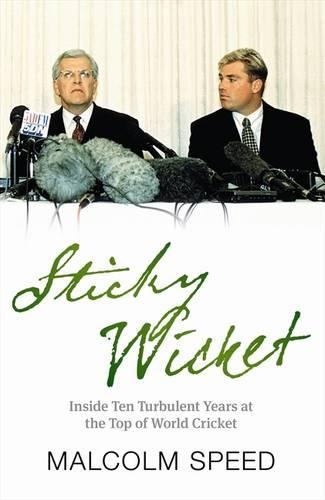
Sticky Wicket: A Decade of Change in World Cricket
(Paperback)
Publishing Details
Sticky Wicket: A Decade of Change in World Cricket
By (Author) Malcolm Speed
HarperCollins Publishers (Australia) Pty Ltd
HarperSports
1st April 2011
Australia
Classifications
General
Non Fiction
Memoirs
796.35865
Physical Properties
Paperback
346
Width 155mm, Height 235mm, Spine 20mm
560g
Description
Malcolm Speed has been involved first-hand with some of the most tumultuous events in the history of cricket. He has been burned in effigy on several occasions; described in The Hindustan Times as 'one of the most disliked men in India' and nominated as 'public enemy number one' by the Sydney Morning Herald. Initially viewed as an outsider in an environment customarily run by 'cricket people', Speed's appointment in 1997 as CEO of the Australian Cricket Board occurred as the administration faced a hostile relationship and delicate negotiations with its players. From pay disputes to corruption, and player behaviour to chucking, Speed had plenty to occupy his four-year term in the job. As CEO of the International Cricket Council from 2001 to 2008, Speed oversaw the emergence of India as the game's superpower; the introduction of a new shorter form of the game, Twenty20; the disastrous World Cup in the West Indies in 2007; the murder investigation surrounding the death of Pakistan coach Bob Woolmer; and the 'Monkeygate' scandal involving India and Australia in 2008. In Sticky Wicket, Speed pulls no punches as he speaks candidly about cricket - the game, the characters and the dramas - as one of its privileged custodians during his decade at the top of world cricket.
Author Bio
After a three-year period of establishing his own sports management consultancy, looking after 30 different sports, Malcolm Speed was appointed the chief executive of the Australian Cricket Board in 1997. Then in 2001, he was appointed chief executive officer of the International Cricket Council, holding the role for several years before it came to an abrupt end in 2008 after a highly publicised falling out with the ICC president. He now lectures and consults from his home in Melbourne.
